RPL17A / YKL180W Overview
- Standard Name
- RPL17A
- Systematic Name
- YKL180W
- SGD ID
- SGD:S000001663
- Aliases
- uL22 8 , L17A 1 , L20A 1 , YL17 1 , RPL17 , L22 5
- Feature Type
- ORF , Verified
- Description
- Ribosomal 60S subunit protein L17A; required for processing of 27SB pre-rRNA and formation of stable 66S assembly intermediates; copurifies with the Dam1 complex (aka DASH complex); homologous to mammalian ribosomal protein L17 and bacterial L22; RPL17A has a paralog, RPL17B, that arose from the whole genome duplication; protein abundance increases in response to DNA replication stress 1 2 3 4 5 6 7
- Name Description
- Ribosomal Protein of the Large subunit
- Paralog
- RPL17B 4
- Comparative Info
-
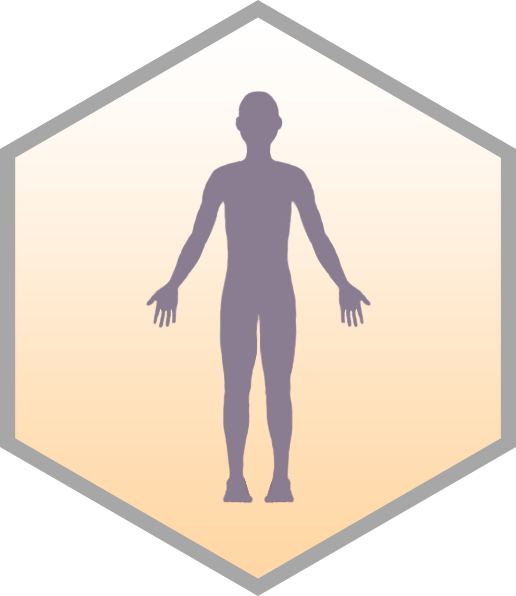
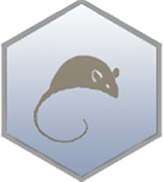
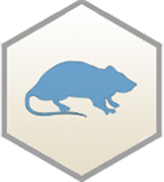
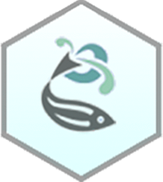
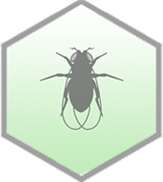
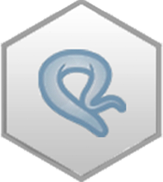
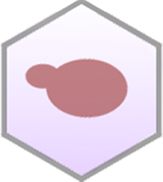
Sequence
The S. cerevisiae Reference Genome sequence is derived from laboratory strain S288C. Download DNA or protein sequence, view genomic context and coordinates. Click "Sequence Details" to view all sequence information for this locus, including that for other strains.
- Summary
- RPL17A has a paralog, RPL17B, that arose from the whole genome duplication
Analyze Sequence
S288C only
BLASTN | BLASTP | Design Primers | Restriction Fragment Map | Restriction Fragment Sizes | Six-Frame Translation
S288C vs. other species
BLASTN vs. fungi | BLASTP at NCBI | BLASTP vs. fungi
S288C vs. other strains
Protein
Basic sequence-derived (length, molecular weight, isoelectric point) and experimentally-determined (median abundance, median absolute deviation) protein information. Click "Protein Details" for further information about the protein such as half-life, abundance, domains, domains shared with other proteins, protein sequence retrieval for various strains, physico-chemical properties, protein modification sites, and external identifiers for the protein.
- Summary
- Ribosomal 60S subunit protein L17A; copurifies with the Dam1 complex (aka DASH complex); protein abundance increases in response to DNA replication stress
- Length (a.a.)
- 184
- Mol. Weight (Da)
- 20572.9
- Isoelectric Point
- 11.54
- Median Abundance (molecules/cell)
- 37495 +/- 20764
Alleles
Curated mutant alleles for the specified gene, listed alphabetically. Click on the allele name to open the allele page. Click "SGD search" to view all alleles in search results.
View all RPL17A alleles in SGD search
Gene Ontology
GO Annotations consist of four mandatory components: a gene product, a term from one of the three Gene Ontology (GO) controlled vocabularies (Molecular Function, Biological Process, and Cellular Component), a reference, and an evidence code. SGD has manually curated and high-throughput GO Annotations, both derived from the literature, as well as computational, or predicted, annotations. Click "Gene Ontology Details" to view all GO information and evidence for this locus as well as biological processes it shares with other genes.
- Summary
- Subunit of the cytosolic large ribosomal subunit; required for production of mature 60S subunits via 27SB pre-rRNA processing in C2 site of ITS2
View computational annotations
Molecular Function
- Manually Curated
- enables structural constituent of ribosome (IDA)
Biological Process
- Manually Curated
Cellular Component
- Manually Curated
- located in cytoplasm (HDA)
- part of cytosolic large ribosomal subunit (IDA)
- part of preribosome, large subunit precursor (IDA)
Phenotype
Phenotype annotations for a gene are curated single mutant phenotypes that require an observable (e.g., "cell shape"), a qualifier (e.g., "abnormal"), a mutant type (e.g., null), strain background, and a reference. In addition, annotations are classified as classical genetics or high-throughput (e.g., large scale survey, systematic mutation set). Whenever possible, allele information and additional details are provided. Click "Phenotype Details" to view all phenotype annotations and evidence for this locus as well as phenotypes it shares with other genes.
- null
- gain of function
- reduction of function
- conditional
Large-scale Survey
Interaction
Interaction annotations are curated by BioGRID and include physical or genetic interactions observed between at least two genes. An interaction annotation is composed of the interaction type, name of the interactor, assay type (e.g., Two-Hybrid), annotation type (e.g., manual or high-throughput), and a reference, as well as other experimental details. Click "Interaction Details" to view all interaction annotations and evidence for this locus, including an interaction visualization.
- Summary
- The rpl17a null mutant is inviable; the null mutant of paralog rpl17b is viable; the rpl17a rpl17b double mutant is inviable.
373 total interactions for 314 unique genes
Physical Interactions
- Affinity Capture-MS: 232
- Affinity Capture-RNA: 9
- Affinity Capture-Western: 20
- Co-crystal Structure: 1
- Co-purification: 4
- Cross-Linking-MS (XL-MS): 2
- Protein-RNA: 2
- Proximity Label-MS: 2
- Reconstituted Complex: 1
Genetic Interactions
- Dosage Rescue: 4
- Negative Genetic: 72
- Phenotypic Suppression: 1
- Positive Genetic: 17
- Synthetic Growth Defect: 4
- Synthetic Lethality: 2
Regulation
The number of putative Regulators (genes that regulate it) and Targets (genes it regulates) for the given locus, based on experimental evidence. This evidence includes data generated through high-throughput techniques. Click "Regulation Details" to view all regulation annotations, shared GO enrichment among regulation Targets, and a regulator/target diagram for the locus.
- Regulators
- 18
- Targets
- 0
Expression
Expression data are derived from records contained in the Gene Expression Omnibus (GEO), and are first log2 transformed and normalized. Referenced datasets may contain one or more condition(s), and as a result there may be a greater number of conditions than datasets represented in a single clickable histogram bar. The histogram division at 0.0 separates the down-regulated (green) conditions and datasets from those that are up-regulated (red). Click "Expression Details" to view all expression annotations and details for this locus, including a visualization of genes that share a similar expression pattern.
Summary Paragraph
A summary of the locus, written by SGD Biocurators following a thorough review of the literature. Links to gene names and curated GO terms are included within the Summary Paragraphs.
Last Updated: 2007-02-14
Literature
All manually curated literature for the specified gene, organized into topics according to their relevance to the gene (Primary Literature, Additional Literature, or Review). Click "Literature Details" to view all literature information for this locus, including shared literature between genes.